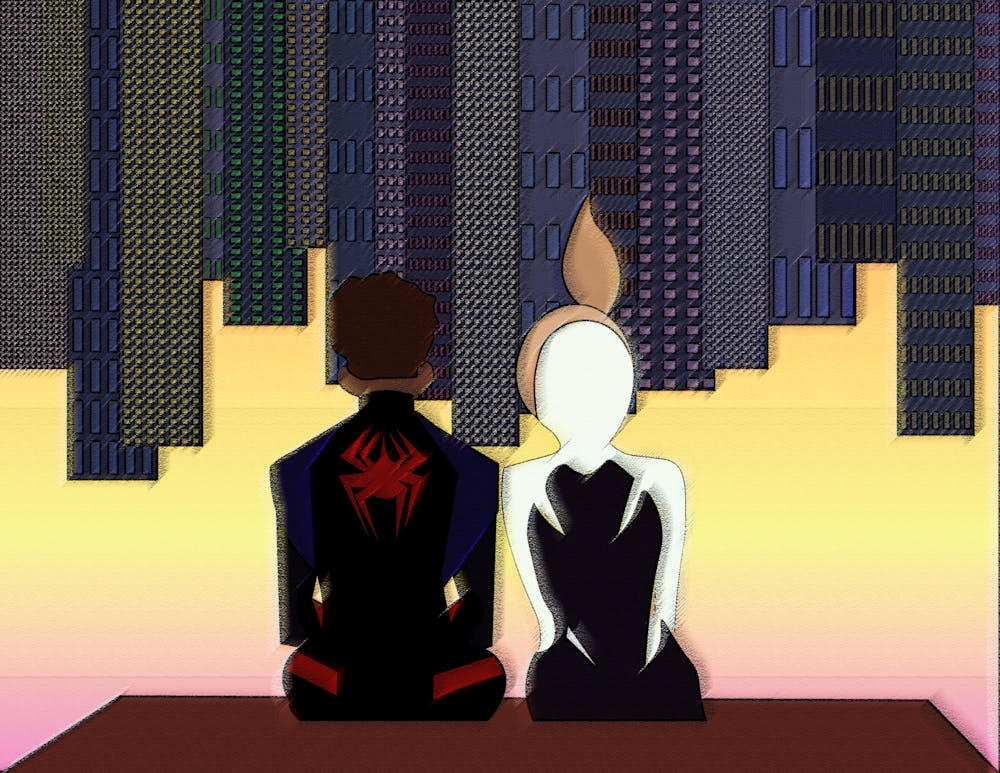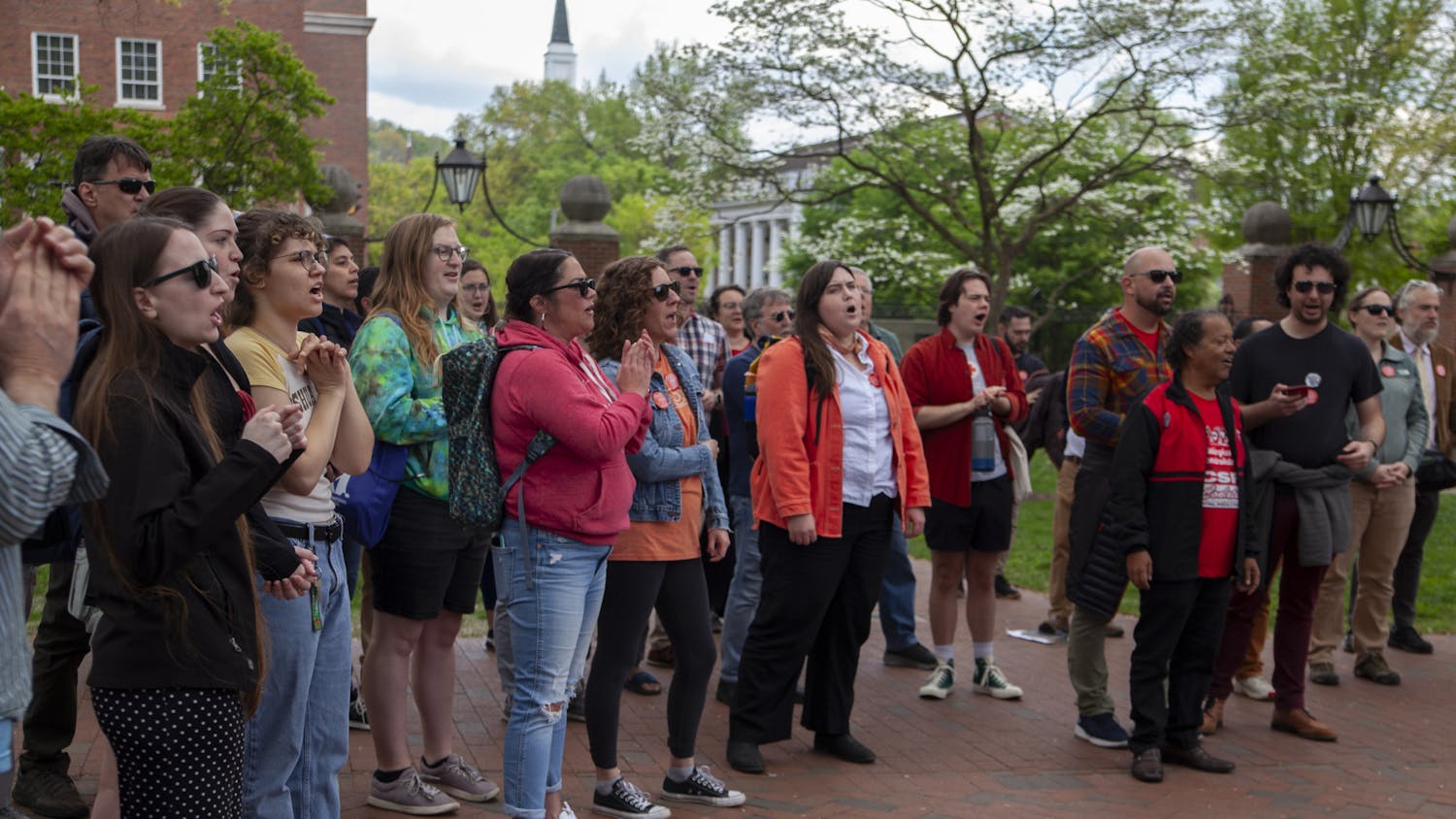“Spider-Man: Into the Spider-Verse” (2018) directed by Peter Ramsey, Rodney Rothman and Bob Persichetti came out at a time where it seemed like audiences had had enough of Spider-Man. Just in the last twenty years, we’ve had three different male actors portray the character in fourteen combined films. Fourteen! We’ve also had three animated television shows in which the oldest one dates back to the year 2003. That’s a lot of Spider-Man.
So when news broke that Sony Pictures was going to release another independent Spider-Man film, I was both a bit skeptical and curious on how the movie would turn out. What audiences got on December 14, 2018 is quite possibly the best representation of Spider-Man in a major motion picture. Five years later on June 2, 2023 a sequel titled “Spider-Man: Across the Spider-Verse” was released in theaters, and it is just as good if not better than its predecessor.
“Spider-Man: Across the Spider-Verse” is a movie that goes deeper into the mythos on what it means to be a hero and, more importantly, what it means to be Spider-Man. All iterations of Spider-Man have tackled this theme. Before this film, the best Spider-Man movie to capture the spirit of the character was “Spider-Man: No Way Home” (2021) directed by Jon Watts.
When comparing the two, it’s hard not to notice the similar character arcs that both Peter Parker (played by Tom Holland) and Miles Morales (voiced by Shameik Moore) go through. Both Spider-Men learn that being a hero comes at a cost and experience the loss of some of their family members or friends.
For Holland’s Parker, his Aunt May (played by Marisa Tomei) dies in his arms after being injured by the Green Goblin (played by Willem Dafoe). For Moore’s Morales, his Uncle Aaron is fatally shot by Wilson Fisk/Kingpin (voiced by Liev Schreiber). Every Spider-Person in the entire multiverse has had his/her own sacrifices to make and loved ones to lose.
However, there is one thing that does separate Moore’s Morales from Holland’s Parker is that Morales is faced with the challenge of accepting his father’s fate of death before it even happens whereas Parker did not have any prior knowledge that Aunt May would die.
In “Spider-Man: Across the Spider-Verse,” the audience is introduced to Miguel O’Hara/Spider-Man 2099 (voiced by Oscar Issac). He informs Morales that all Spider-People are connected in the Spider-Verse and that each of their backstories contain “canon events.” An example of a canon event would be the death of a police captain who was close to Spider-Man. If those canon events are not fulfilled due to a disturbance, then the multiverse is threatened to collapse.
Morales comes to the horrifying realization that his own father Jefferson Davis is about to become captain in just a couple of days. Miguel and other familiar faces such as Gwen Stacy/Spider-Woman (voiced by Hailee Steinfeld) and Peter B. Parker/Spider-Man (voiced by Jake Johnson) try to calm Miles down but he ultimately flees back for his own dimension to save his father from being murdered by the Spot (voiced by Jason Schwartzman); a new villain who was once a scientist that created the spider that bit Miles and gave him his powers.
“Spider-Man: Across the Spider-Verse” offers a new and interesting take on Spider-Man without being overly complicated. The addition that every member of the Spider-Society has grown to accept that canon events must happen for the sake of the stability of the multiverse but Miles does not and instead tries to save both his father and keep the multiverse intact is perfect for his character.
The fact that the writers behind this film decided to go with the idea that all Spider-People’s lives in the Spider-Verse operate solely based on what some algorithm says how reality should be is creative and makes for more engaging storytelling.
Speaking of storytelling, one aspect of the film that I absolutely adored was the inclusion of more Gwen Stacy and her story. If there is a candidate for who stole the show in this movie it would be Hailee Steinfeld as Gwen Stacy. The opening fifteen minutes are completed devoted to her and her relationship with her father, Captain George Stacy (voiced by Shea Whigham).
Through flashbacks and monologue delivered by Steinfeld, we see that Gwen accidentally killed her best friend Peter Parker (this time voiced by Jack Quaid) while he was causing mayhem as the Lizard. After his death, police led by Captain George Stacy arrived at the crime scene to find Spider-Woman sitting next to Peter’s dead body. Spider-Woman swings away before being apprehended by the cops. George vows to bring Spider-Woman down as he believes she killed Peter.
Later on, George finally confronts Spider-Woman at gunpoint. With nowhere to go, Gwen reveals her identity to her father. George is obviously distraught at this and attempts to arrest his own daughter on the count of murder. Gwen then leaves her dimension and her father to go along with Miguel and Jessica Drew (voiced by Issa Rae) to become a member of the Spider-Society.
Gwen faces the same problem that Miles faces which is to whether or not reveal herself to her father that she is Spider-Woman. It’s understandable for someone not to tell their beloved ones that he/she is actually a superhero that fights supervillains on almost a daily basis. That would be way too much to take in. Plus, what if your friends and family reject you? How would you react if that scenario occurred?
Luckily for the audience we do eventually know what happens between her and her father. Near the end of the film, Gwen is sent back to her dimension by Miguel and meets George in their apartment. Rather than arrest her, George reconciles with Gwen and the two have a heartwarming father-and-daughter hug.
George tells Gwen that he had resigned as police captain to which surprises Gwen. The canon event of her father dying ended up not happening. George also gives Gwen a watch that was given to George by a man named Hobie Brown/Spider-Punk (voiced by Daniel Kaluuya). The watch is actually a device designed to create portals that can send people from their current dimension to a different dimension. Gwen uses it to assemble a team of Spider-People and to help and find Miles.
The movie ends on a cliffhanger as we see Miles traveled to the wrong dimension and is interrogated by an alternate version of his uncle Aaron Davis and an alternate version of Miles who has become the Prowler. The dimension that Miles is in is also one in which his father is dead and New York City doesn’t have a Spider-Person.
“Spider-Man: Across the Spider-Verse” is a fantastic followup to an equally fantastic original film. It’s a movie filled with countless amounts of heart, passion, creativity and love for Spider-Man. Its breathtaking animation, superb voice acting and excellent storytelling already makes it one of the best movies to come out this year by far. If you haven’t seen it, please go and watch it.
Rating: 4.5/5






